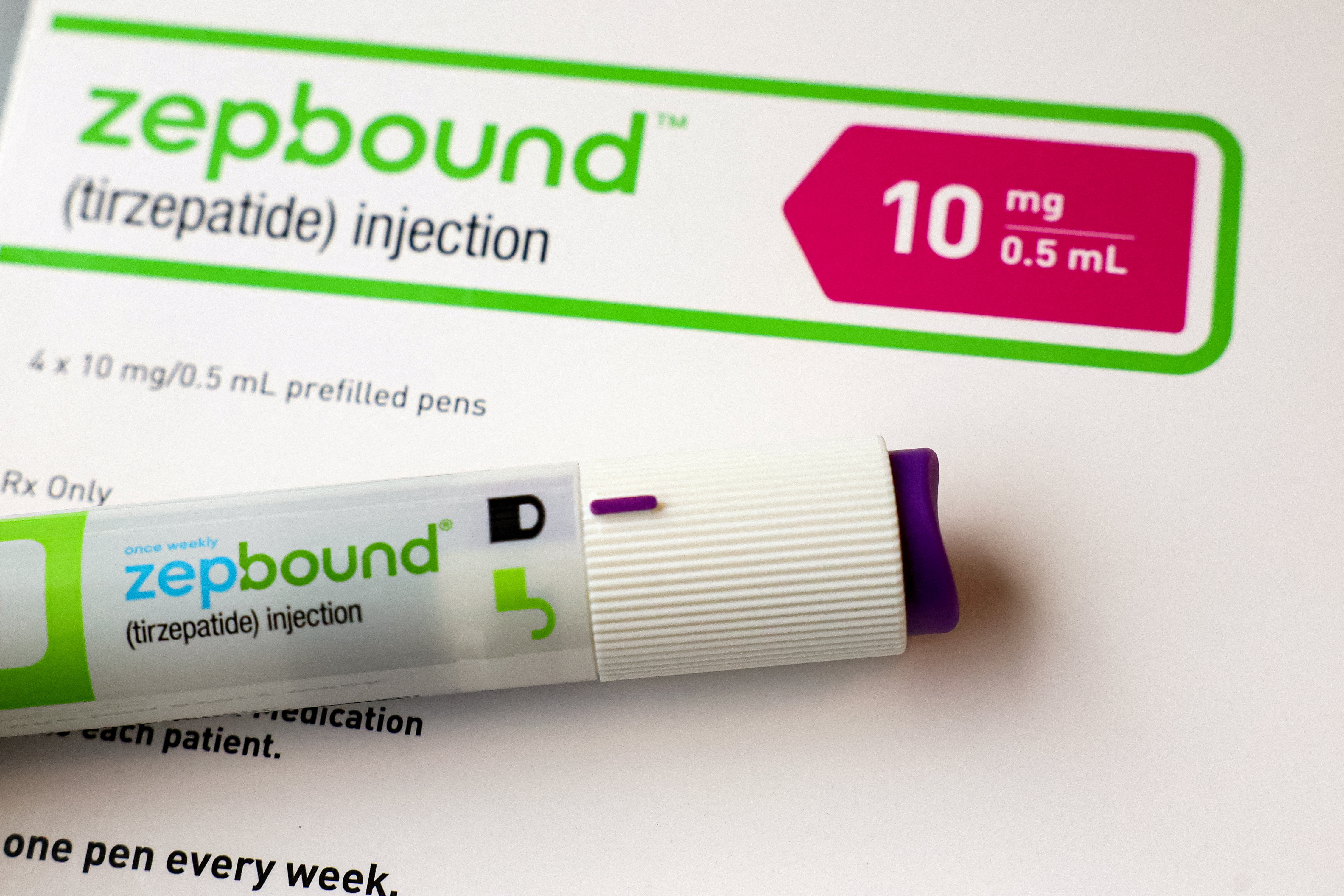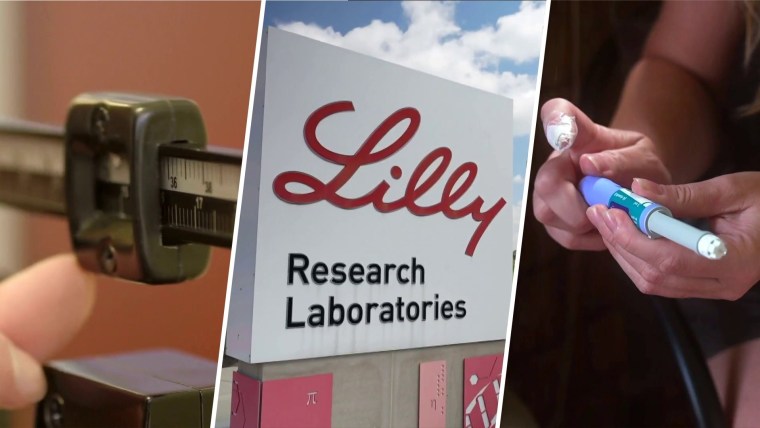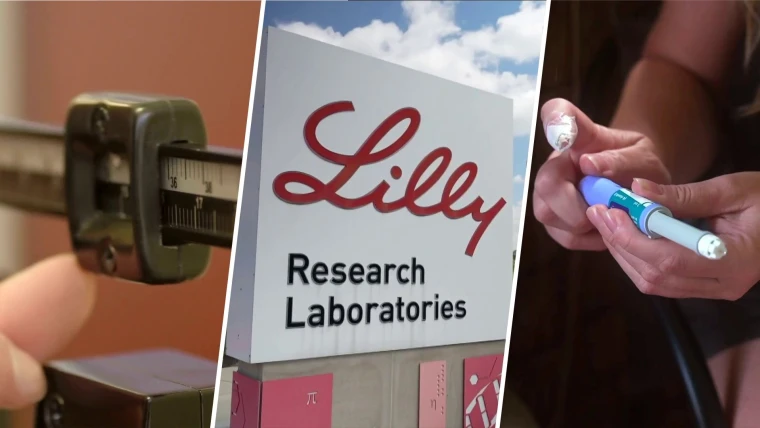Eli Lilly Takes a Digital Leap: Unveils New Website for Online Prescription of Weight Loss Drugs
In a bid to improve accessibility to weight loss drugs, pharmaceutical company Eli Lilly has recently unveiled a new website called LillyDirect. The website aims to connect patients with telehealth providers, allowing them to obtain prescriptions for weight loss medications online. This move comes as telehealth platforms like Weight Watchers and Ro have gained popularity for offering weight loss drugs remotely. However, LillyDirect stands out as the first platform of its kind launched by a pharmaceutical company.
Easier Access to Weight Loss Drugs Through Online Prescription
LillyDirect streamlines the process of obtaining weight loss drugs by eliminating the need for a physical visit to the doctor and subsequent visit to the pharmacy. Through the website, patients can now consult with telehealth providers from the comfort of their own homes and receive a prescription for weight loss medications. This convenient service aims to improve access to highly popular and effective drugs, including Eli Lilly’s recently approved weight loss medication, Zepbound.
According to David Ricks, CEO of Eli Lilly, the launch of LillyDirect is a step towards providing a more direct purchasing option for prescription drugs, similar to the way consumers can purchase other goods directly from manufacturers online. Patients prescribed Zepbound through this platform will also be eligible for Lilly’s at-home prescription delivery service.
The Rise of GLP-1 Agonists in Weight Loss Medications
Zepbound is the latest addition to the class of medications known as GLP-1 agonists. These drugs have gained recognition for their effectiveness in aiding weight loss. Other medications in this class include Lilly’s Mounjaro, Novo Nordisk’s Ozempic, and Wegovy.
GLP-1 agonists work by mimicking the action of the hormone GLP-1, which helps regulate blood sugar levels and promotes feelings of fullness. By enhancing satiety and reducing appetite, these medications have shown promising results in helping patients achieve sustainable weight loss.
Concerns and Expert Opinions on LillyDirect
While the launch of LillyDirect presents a convenient option for patients seeking weight loss medications, some experts have expressed concerns and raised questions about the motives behind this platform. Arthur Caplan, the head of the division of medical ethics at NYU Langone Medical Center, highlights the potential conflict of interest when a pharmaceutical company offers its own weight loss drug through a telehealth platform.
Caplan suggests that the significant financial stakes involved in the weight loss drug market may create an appearance of bias or conflict of interest. However, Eli Lilly emphasizes that neither Form Health, the telehealth provider associated with LillyDirect, nor its physicians will receive financial compensation for prescribing Zepbound.

Telehealth for Weight Loss Drugs: Expanding Access to Underserved Populations
LillyDirect joins a growing list of telehealth platforms that offer weight loss drugs. These platforms play a crucial role in expanding access to healthcare, particularly for underserved populations residing in rural areas or lacking nearby access to doctors. Dr. Saurabh Chandra, the chief telehealth officer at the Center for Telehealth at the University of Mississippi Medical Center, emphasizes the importance of telehealth in bridging the healthcare gap for these populations.
Approximately 18% to 20% of the population in the United States resides in rural areas, and a shortage of primary care physicians further exacerbates the lack of access to healthcare. Telehealth services like LillyDirect can help address these challenges by providing remote consultations and prescriptions, ensuring that patients receive the care they need regardless of their geographical location.
Ensuring Patient Safety and Preventing Fraudulent Access
To ensure patient safety and prevent fraudulent access to weight loss drugs, Form Health, the telehealth provider associated with LillyDirect, incorporates multiple layers of protection. Physicians review each patient’s medical records, including any existing medications, to assess whether a weight loss drug is appropriate. They also verify the patient’s medical information and use various means, such as matching driver’s license details with the patient’s appearance, to confirm their identity.
Evan Richardson, CEO of Form Health, emphasizes the importance of ensuring that weight loss drugs are prescribed only to patients who meet the necessary criteria. This approach not only safeguards patient health but also helps maintain a sustainable supply of medications for those who truly need them.

The Role of Telehealth in Fragmentation of Care
While telehealth platforms like LillyDirect offer convenience and accessibility, some experts express concerns about potential fragmentation of care. Dr. Shauna Levy, a specialist in obesity medicine and the medical director of the Tulane Bariatric Center, highlights the need for comprehensive care coordination when patients are utilizing both telehealth platforms and in-person providers.
Dr. Levy raises concerns about potential drug-to-drug interactions if providers are unaware of the medications prescribed by other healthcare professionals. To address this issue, Form Health doctors thoroughly review each patient’s medical records and existing medications, ensuring that all aspects of their healthcare are taken into account.
Looking Ahead: Supply and Demand for Weight Loss Drugs
As the popularity of weight loss drugs continues to rise, concerns about supply and demand have come to the forefront. The active ingredient in Novo Nordisk’s Ozempic and Wegovy, semaglutide, has been in short supply since March 2022 due to the increasing demand for these medications.
David Ricks, CEO of Eli Lilly, reassures patients that the supply of Zepbound will not be impacted by the launch of LillyDirect. Whether patients choose to obtain their medication from a local pharmacy or through LillyDirect, the company remains confident in its ability to meet the expected high demand for Zepbound.

Conclusion
Eli Lilly’s launch of LillyDirect, a website offering online prescriptions for weight loss drugs, represents a significant step towards improving accessibility and convenience for patients seeking these medications. By connecting patients with telehealth providers, LillyDirect streamlines the process of obtaining weight loss drugs, eliminating the need for physical visits to doctors and pharmacies.
While concerns about potential conflicts of interest and fragmentation of care have been raised, the focus remains on ensuring patient safety and expanding access to healthcare, particularly for underserved populations. Telehealth platforms like LillyDirect offer a solution for patients who may live far from healthcare providers or face a shortage of primary care physicians.
As the demand for weight loss drugs continues to grow, the launch of LillyDirect provides an innovative option for patients to access these medications. With careful consideration of patient needs and comprehensive care coordination, telehealth platforms have the potential to play a vital role in improving overall patient outcomes in the field of weight loss and obesity medicine.
